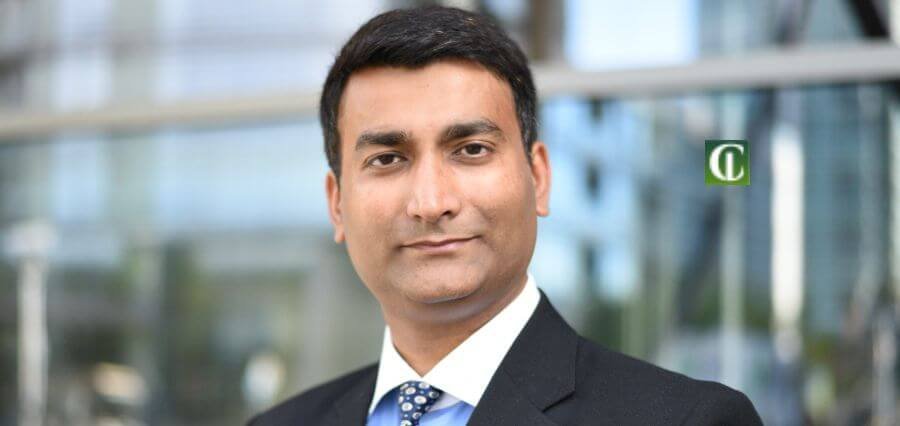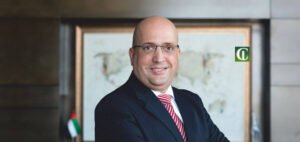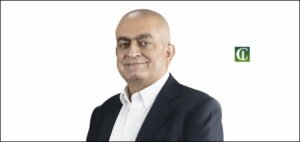Rapid changes have been occurring in the danger landscape. So much so that encountering leaders who are both technically and interpersonally skilled is no longer common. Vishal Vaghela, the CISO of Americana Restaurants, is a perfect example of next generation cybersecurity leadership. He blends technical know-how with cultural awareness, strategic insight with on-the-ground leadership, and international exposure with local knowledge.
From IT Infrastructure to Security Guardian
Vishal describes his entry into cybersecurity as “a radical heist wherein I stole a skill from the security team that I respected.” Before he realised that security teams would arrive with some sort of crisis directive. “Fix this, patch this, do something to contain now!” he spent eight years building networks, running infrastructure, and running data centres.
The transition was motivated by ambition and professional aspirations. “One day in the future, I would tell myself, why must I be the one receiving all these alerts rather than me being the one to send them?” Vishal remembers. Before reaching the burgeoning cybersecurity hub of the Arab World, it signalled the beginning of a career spanning over two decades in India, the United States, and Canada.
However, he hadn’t prepared for the realities of working for a cybersecurity company: the calls at two in the morning, the emergency calls fuelled by caffeine, and what he refers to as the “chronic ailment known as Always-On Mode.” Even so, these challenges strengthened his resolve to stay in the industry. As a CISO, Vishal now does more than just protect systems; he also shapes innovation and culture and occasionally returns to his original role of instructing IT teams on how to fix issues.
Cultural Intelligence in Cybersecurity Leadership
Having worked on several other continents, Vishal brings a different set of experience to the table when it comes to the Arab World’s cybersecurity leadership. He supports “culture of fluency and adaptability”. On the other hand, he possesses a strong understanding of the primacy that interpersonal relationships enjoy in regional business culture.
“By far the most valuable lesson that did indeed change my leadership style was realizing the value of a personal connection,” says Vishal. “A face-to-face conversation for five minutes typically remedies what 10 emails, and 3 follow-up text messages cannot. Not only faster, respectful, human, and effective.”
Vishal is more of a “walk-the-floor” CISO. He’s present not only when there are breaches, but also each day. With an eagle’s eye over the shoulder on unlocked laptops, he watches global threat intelligence. Establishing the expectation is healthy to place the trust that he perceives is “half the battle won” in cybersecurity.
His sensitivity towards cultures has enhanced his familiarity with local business cultures. “I’ve discovered that, in ransomware as well, hospitality is an art in the Middle East,” he goes on in his own humor.
Balancing Human Factors with Technical Strategy
With ever-more complex, newer cyber threats emerging on the horizon, Vishal’s leadership philosophy stems from one observation: “The most powerful firewall is still the one sitting behind the keyboard- also known as the human.” This mindset defines the way in which he navigates the convergence of technical planning and people-centered leadership.
Vishal recognizes the dual-edged nature of human involvement in cybersecurity, the greatest asset and sometimes worst liability. He has seen sharp-eyed analysts bring concerns of potential interest because “something just did not feel right”, and diligent employees clicking on a malicious email after a bad day at the office.
His answer is positive leadership with strategy and empathy filling in gaps where security training matches technology tools. It’s a “pause and think” and not the possible cataclysmic “click and regret” option.
Artificial intelligence-powered cybersecurity operations have their benefits and pitfalls that Vishal goes out of his way to avoid. He views AI as delivering superhero capabilities to the security team, ranging from advanced threat hunting to advanced anomaly detection. But even the finest AI, he warns, needs human judgment and human intervention. “Even Iron Man needed Tony Stark,” he reminds, referencing his own function in delivering the perfect combination of human hunch and AI accuracy.
Key Principles of Cyber-Resilient Culture
Vishal’s approach to building cyber-resilient organisational cultures is based on “honesty over illusion.” Instead of guaranteeing zero risk or sole ownership of absolute knowledge, he advocates for honesty regarding known risk, accepted gaps, and inherent uncertainties.
“Cyber-resilience begins with transparency,” expresses Vishal. “That is, willingly accepting residual risk as a fact of life. It’s not a hole in your strategy; it is your strategy.” This places the CISO’s task to get residual risks into people’s heads so that a decision can be reached on a collective knowledge basis.
Empowerment is the second leg of his strategy, not just for security teams but also business leaders, developers, and even HR groups. Once individuals grasp the intrinsic reasonableness of security policies and controls, Vishal finds, compliance shifts from “checkbox fatigue” to good old common sense. This goes hand in hand with the realization that cyber resiliency cannot be established in isolation but must be accepted and made known across the organization.
Leadership Through Crisis
Vishal’s most challenging experience was when he witnessed a crucial cyberattack during his early years in Cyber Security, which halted organizational operations. He had two options for recovery- a very secure but time consuming one that ensured total security at the expense of prolonged downtime, or a quick one that ensured business continuity at the expense of ongoing total security monitoring. Vishal opted for the latter.
This meant his workers had to be actively vigilant, woken up by caffeine as what he’s called “basically a food group.” The relocation was also part of an ideology that’s now central to his business approach: successful businesses don’t expand by playing it safe but by seeing, embracing, and bridging it.
The experience further underscored Vishal’s passion for what he refers to as “risk-to-reward” conversations. All security solutions his company offers today involve pre-emptive business risk and impact analysis. “Cybersecurity is not an issue of ‘no’ to risk,” he explains. “It’s a matter of ensuring that the risks we do accept are the correct ones, and that we’ve well prepared for them.”
In the future, Vishal sees the CISO role transforming from the “department of no” to one of a strategic trust builder and a transformer, especially in the fast-growing Arab digital economy.
Four lovely shifts capture his vision. One, wiser application of AI; applying solutions to a particular problem instead of technology for the sake of technology. Two, from deploying tools to adopting. Three, embracing unknowns: “Accepting that there will be unknowns, and planning for uncertainty, is not a weakness; it’s wisdom.”
The fourth shift is shifting cybersecurity from outpost function to organizational practice. This entails establishing awareness, cyber awareness, and overall digital hygiene across levels within an organization, beginning with the vendors all the way down to the employees and the contractors.
Establishing Regional Cybersecurity Capabilities
Hiring the cybersecurity talent gap is not a numbers game, Vishal maintains. His approach is about believing in the right people and growing them early in their careers. He makes sure to provide opportunities to graduates from local colleges and universities, not merely the experience of being there but actual substantive, hands-on work with significant training.
The outcome has surpassed his expectations. “The enthusiasm, curiosity and commitment I’ve encountered in a high percentage of these young professionals are terrific, many times rejuvenating instead of the ‘this is how we’ve always done it’ that inhibits development at times in more experienced groups.”
Besides straight recruitment, Vishal has interactions with universities and takes industry board advisory positions, trying to connect academic deliverables with the genuine requirements of the world of cyber security. He believes that there is not as big a talent gap as is generally conceived. The actual work is the one he refers to as the “trust deficit.” The companies should break away from conventional internship culture and offer new professionals real work, thus creating robust, innovative cyber teams who could survive harsh conditions in the future.
Innovation and Security Harmony
Vishal dispels the popular myth that security and innovation are mutually exclusive. His own definition of innovation is broader than startups and new, revolutionary products to any solution innovative where there isn’t an off-the-shelf cookie-cutter solution available. “Innovation is just solving a problem when there’s no off-the-shelf, cookie-cutter solution possible,” he says.
In cyber security, innovation is survival and not an option or choice. Hackers are always coming up with new methods of breaking into networks and also coming up with new methods of escaping defences. Hence, security professionals must keep up or even stay one step ahead of them with those innovation cultures that encourage innovative thinking and fearless experimentation.
Being Ahead of Evolving Threats
When asked what keeps him up at night as a security chief, Vishal’s reply is not technology-related but human-related. One can refresh, patch, and monitor processes and tools, but people are “wonderfully unpredictable” and the most challenging part of end-to-end security planning.
Human action takes countless forms: legitimate users getting phished, passing sensitive data to the wrong people by error, or downloading illegal software. IT administrators get behind on hectic days and will inadvertantly configure servers incorrectly or leave insecure firewalls exposed. Worst of all, however, are upset insiders with close access and knowledge who become unstable security menaces.
“Technology is easier to control than human,” believes Vishal. This is why creating awareness, creating security cultures, and being transparent and honest form the pillars of his strategic reaction.
Advice for Emerging Cybersecurity Leaders
To young aspiring cybersecurity professionals and aspiring young cybersecurity leaders, Vishal’s advice stems from embracing and questioning the unknown. “Cybersecurity is as much about people and judgment as it is about technology,” he goes on to say. He seeks to prepare new entrants into the profession with knowledge that they will be dealing with surprise attacks, issues that call for one-off solutions, and scenarios that call for making risk-reward trade-off decisions in the field.
The best cyber security managers he has ever met do not simply chase the latest technology solutions. They spend time learning about business processes, people interactions, and larger organizational contexts. From that larger context, it is then possible to make more informed decisions and strategic planning.
Above all, if anything, Vishal hails the power of human interaction in cybersecurity leadership. “Don’t underestimate the power of a good conversation. Whether it’s a rushed coffee break or a 2 a.m. phone call, human touch can be your best friend.”
His last word of advice is a summary of his leadership approach: “Stay curious, be humble about what you don’t know, and be brave enough to take calculated risks. Because in this field, that combination is the real superpower.”
The Future of Cybersecurity Leadership
As Vishal draws us deeper into Americana Restaurants’ and the Arab online economy’s cyber depths, his stewardship defies traditional wisdom regarding cybersecurity management. He combines technical acumen and cultural sensitivity, strategic vision with role-modelling mentoring, global foresight coupled with local applicability. Furthermore, he illustrates that leadership in cybersecurity is less a matter of people skills, but more a matter of technical skills. According to him, “it is a matter of human empathy, cultural sensitivity, and trust-deployment down organizational hierarchies.”




